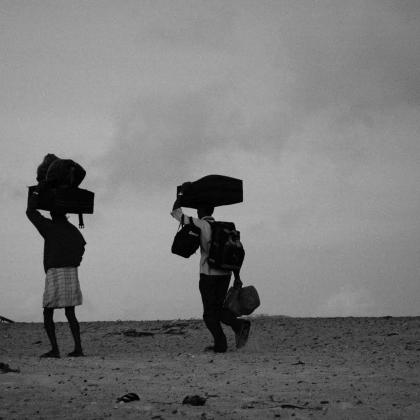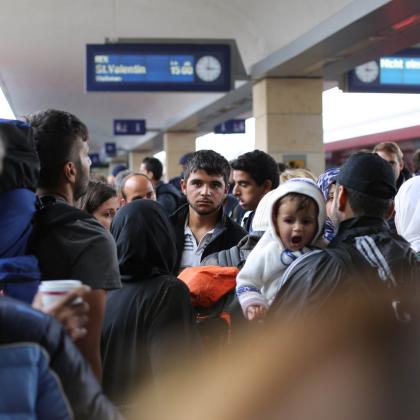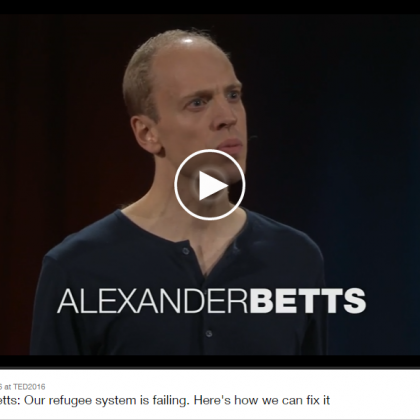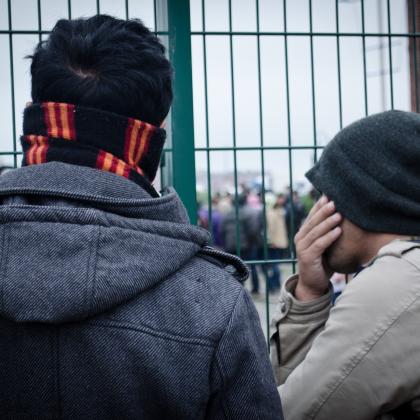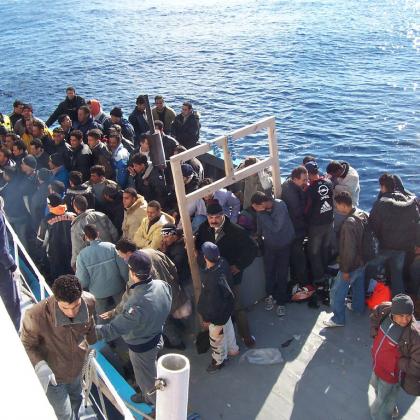Alexander Betts
BA MSc MPhil DPhil
Alexander Betts is Professor of Forced Migration and International Affairs, William Golding Senior Fellow in Politics at Brasenose College, and Associate Head of the Social Science Division at the University of Oxford. He served as Director of the Refugee Studies Centre between 2014 and 2017. His research focuses on the politics and economics of refugee assistance, with a focus on Africa. His most recent book, Refuge: Transforming a Broken Refugee System (Penguin Allen Lane and Oxford University Press, 2017, co-authored with Paul Collier) was named by The Economist as one of the best books of 2017. His other books include Survival Migration: Failed Governance and the Crisis of Displacement (Cornell University Press, 2013), Mobilising the Diaspora: How Refugees Challenge Authoritarianism (Cambridge University Press, 2016), Refugee Economies: Forced Displacement and Development (Oxford University Press, 2016), and Global Migration Governance (Oxford University Press, 2011). In 2016, he was named by Foreign Policy as one of the leading 100 global thinkers, by Thinkers50 on its radar list of emerging business influencers, and as a World Economic Forum Young Global Leader. His TED talks have been viewed over 3 million time, and he has written for The New York Times, The Washington Post, Foreign Affairs, and The Guardian. He has previously worked for UNHCR, worked as a consultant for a range of international organisations and NGOs, and has served as a Councillor on the World Refugee Council, as well as migration advisory groups for DFID and IOM. He is Principal Investigator on the IKEA Foundation-funded Refugee Economies Programme, which follows the economic lives of 15,000 refugees and host community members over time. He received his MPhil and DPhil from the University of Oxford.

Teaching
Graduate:
Introduction to Refugee Studies and Forced Migration (MSc in Forced Migration);
International Relations and Forced Migration (MSc in Forced Migration);
The Politics and Practice of Humanitarianism (MPP);
Contemporary Debates in IR Theory (MPhil in IR);
International Relations of the Developing World (MPhil in IR).
Undergraduate:
International Relations (Core Paper);
International Relations of the Cold War (Optional Paper);
International Relations of the Inter-War Period (Optional Paper).
Professional:
Refugee Studies Centre Summer School;
International Institute of Humanitarian Law Course on International Refugee Law;
Said Business School Executive Education.
Research summary
My main area of research interest is the international politics of refugee protection and assistance, with a secondary interest in humanitarianism and migration more broadly. Most of my fieldwork takes place in Sub-Saharan Africa. In this empirical work, I attempt to contribute to conceptual debates in International Relations relating to international institutions and transnational politics.
My initial research focused on international cooperation in the global refugee regime, attempting to identity the conditions under which North-South cooperation takes place to overcome longstanding refugee situations. This work resulted in the publication of Protection by Persuasion, which highlights the historically central role of issue-linkage in motivating donor state contributions to refugee burden-sharing. Building on this work, I received a $500,000 MacArthur Foundation grant for a project on the global governance of migration, which explored the institutional, political, and normative dimensions of migration governance across a range of areas of migration. As well as resulting in the edited volume, Global Migration Governance, the project enabled me to continue my work on the refugee regime and led to the publication of Refugees in International Relations, which explores the contribution International Relations theory can offer the study of refugees, and vice versa.
Supported by this project, and based on extensive fieldwork in Africa, Survival Migration explores the changing nature of cross-border displacement to examine how international institutions adapt at the national level to emerging challenges. Looking at displacement from some of the worlds most fragile states - Democratic Republic of Congo, Somalia, and Zimbabwe - it argues that the conditions under which the refugee regime adapts to meet the changing needs of displaced populations is shaped by national and local politics. Some of the conceptual ideas developed in the book are explored in a related edited volume, Implementation and World Politics, which examines how international norms translate from the global to the national and local levels.
I am currently principal investigator on two main research projects, both of which relate to the changing nature of transnational governance. First, the Humanitarian Innovation Project explores the role of the private sector and innovation in humanitarian governance. It looks at how private actors, technology, and innovation are reshaping humanitarianism at global, national and local levels - notably through extensive qualitative and quantitative research on refugees in Uganda. The project is funded with a $1.1 million grant from Stephanie and Hunter Hunt, and details are available on the Humanitarian Innovation Project website. Second, the Nation Outside the State: The Political Mobilisation of the African Diaspora project explores the process through which African diaspora engage in transnational political mobilisation, by looking at Rwandan and Zimbabwean transnational communities. The work provides a theoretical recasting of how we think about the role of power within transnational networks. The project is funded by the Leverhulme Trust and the OUP John Fell Fund with a total of around $150,000.
Media
Refugees; humanitarianism; migration; the United Nations; Africa.
Publications
Authored Books
Survival Migration: Failed Governance and the Crisis of Displacement (Cornell University Press, 2013)
UNHCR: The Politics and Practice of Refugee Protection (with Gil Loescher and James Milner, Routledge, 2012)
Protection by Persuasion: International Cooperation in the Refugee Regime (Cornell University Press, 2009)
Forced Migration and Global Politics (Wiley-Blackwell, 2009)
Edited Books
Implementation in World Politics: How International Norms Change Practice (with Phil Orchard, Oxford University Press, 2014)
Global Migration Governance (Oxford University Press, 2011)
Refugees in International Relations (with Gil Loescher, Oxford University Press, 2010)
Recent Book Chapters
Betts, A (2014), From Persecution to Deprivation: How Refugee Norms Adapt at Implementation, in Betts, A and Orchard, P. (eds), Implementation in World Politics: How International Norms Change Practice (Oxford University Press).
Betts, A and Orchard, P (2014), The Normative Institutionalization-Implementation Gap, in Betts, A and Orchard, P (eds), Implementation in World Politics: How International Norms Change Practice (Oxford University Press).
Betts, A (2014), International Relations and Forced Migration, in Fiddian-Qasmiyeh, E, Loescher, G, Long, K, and Sigona, N (eds), The Handbook of Refugee Studies and Forced Migration (Oxford University Press).
Betts, A (2014), The Global Governance of Crisis Migration, in Martin, S et al (eds), Humanitarian Crisis and Migration (Routledge).
Betts, A and Freeman, G (2014), UK Immigration Policy Under New Labour: a Response to Randall Hansen in Controlling Immigration (Stanford University Press).
Betts, A, Bloom, L, and Omata, N (2014), Humanitarian Innovation and Refugee Assistance, in Brennan, K (ed) Making Global Institutions Work: Power, Accountability, and Change (Routledge).
Betts, A (2013), Global Migration Governance and the Migration Industry in Gammeltoft-Hansen, T and Nyberg-Sorensen, N (eds) The Migration Industry and the Commercialization of International Migration. (Routledge).
Betts, A (2012), UNHCR, Autonomy and Mandate Change, in Oestreich, J (ed), International Organizations as Self-Directed Actors (Routledge).
Betts, A (2011), The Refugee Regime and Issue-Linkage, in Koslowski, R (ed) Global Mobility Regimes (Palgrave MacMillan).
Betts, A (2011), The Implications of Global Migration Governance for UNHCR, in Koser, K and Martin, S (eds), The Migration-Displacement Nexus (Berghahn Books), forthcoming, Chapter 14.
Betts, A (2011), Global Migration Governance in Betts, A (ed), Global Migration Governance (Oxford University Press), Chapter 1.
Betts, A and Cerna, L (2011), The Global Governance of High-Skilled Labour Migration in Betts, A (ed), Global Migration Governance (Oxford University Press), Chapter 3.
Betts, A (2011), Global Governance of Migration and the Role of Trans-regionalism in Kunz, R, Lavenex, S and Panizzon, M (eds),Multilayered Migration Governance: Unveiling The Promise (Routledge), Chapter 1.
Betts, A (2010), International Cooperation in the Refugee Regime, in Betts, A and Loescher, G (eds), Refugees in International Relations (Oxford University Press), Chapter 3.
Betts, A and Loescher, G (2010), Refugees in International Relations in Betts, A and Loescher, G (eds), Refugees in International Relations (Oxford University Press), Chapter 1.
Betts, A (2010), Substantive Issue-linkage and the International Politics of Migration in
Bjola, C and Kornprobst, M (eds), Arguing About Global Governance (Routledge), pp. 85-100.
Betts, A (2008), Historical Lessons for Overcoming Protracted Refugee Situations in Loescher, G et al (eds), The Politics, Human Rights, and Security Implications of Protracted Refugee Solutions, Chapter 9, (United Nations University Press), pp. 162-186.
Betts, A (2006), Rethinking Durable Solutions, in Merheb, N (ed), The State of the Worlds Refugees, (Oxford University Press), Chapter 6, pp.128-144.
Recent Journal Articles
Betts, A (2013), Regime Complexity and International Organizations: UNHCR as a
Challenged Institution, in Global Governance, Vol. 19:1, pp. 69-81.
Betts, A (2011), Soft Law and Vulnerable Irregular Migrants, Georgetown Journal of
Immigration Law, Vol. 24:4.
Betts, A (2010), Survival Migration: A New Protection Framework, Global Governance,
Vol. 16:3, pp. 361-382.
Betts, A (2010), The Refugee Regime Complex, Refugee Survey Quarterly,
Vol. 29:2, pp. 12-37.
Betts, A (2010), Towards a Soft Law Framework for the Protection of Vulnerable
Irregular Migrants, International Journal of Refugee Law, Volume 22.2. pp. 209-236.
Betts, A (2009), Institutional Proliferation and the Refugee Regime, Perspectives
on Politics, March, Vol. 7.1, pp. 53-58.
Betts, A (2008), North-South Cooperation in the Refugee Regime: The Role of
Linkages, Global Governance, April-June, Vol.14:2,pp. 157178.
Betts, A and Durieux J-F (2007), Convention Plus as a Norm-Setting Exercise
(With Jean-Francois Durieux), Journal of Refugee Studies, Vol. 20:3.
Betts, A (2006), Towards a Mediterranean Solution: Implications for the Region
of Origin, International Journal of Refugee Law, Vol.18:3, pp. 652-676.
Betts, A (2006), What Does Efficiency Mean in the Context of the Global Refugee
Regime?, British Journal of Politics and International Relations, Vol. 8:2, pp. 148-173.
Betts, A (2005), Should Approaches To Post-Conflict Justice and Reconciliation
Be Determined Globally, Nationally or Locally?, European Journal of Development
Research, Vol. 7:4, pp. 735-752.
Betts, A (2004), The International Relations of the New Extra-Territorial Approaches
to Refugee Protection, Refuge, Vol. 22:1, pp. 58-70.
Betts, A (2003), Public Goods Theory and the Provision of Refugee Protection: The
Role of the Joint-Product Model in Burden-Sharing Theory, Journal of Refugee
Studies, Vol. 16:3, pp. 274-296.
Recent Working Papers
Bloom, L and Betts, A (2013), The Two Worlds of Humanitarian Innovation,
Refugee Studies Centre Working Paper.
Betts, A, Bloom, L and Omata, N (2012), Humanitarian Innovation and Refugee
Protection, Refugee Studies Centre Working Paper.
Betts, A and Jones, W (2012), The Transnational Exile Complex: How to Think
About Africa Diaspora Politics, Refugee Studies Centre Working Paper.
Betts, A., Prantl, J., Sridhar, D., and Woods, N. (2012) Transforming Global Governance
for the Twenty-First Century. Background paper for the United Nations Human
Development Report2012. New York: UNDP.
Betts, A (2010), Migration Governance: Alternative Futures, Background Paper
for IOMs World Migration Report, (IOM: Geneva).
Betts, A and Kaytaz, E (2009), National and International Responses to the
Zimbabwean Exodus: Implications for the Refugee Protection Regime, New Issues
in Refugee Research, Working Paper, (UNHCR: Geneva).
Betts, A (2009), Refugees and Development Assistance: Towards a North-South
Grand Bargain, Refugee Studies Centre Policy Brief No. 2 (RSC: Oxford).
Betts, A (2008), Towards a Soft Law Framework for the Protection of Vulnerable
Migrants, New Issues in Refugee Research, Working Paper No. 162, (UNHCR: Geneva).
Betts, A and Milner, J (2006), The Externalisation of EU Asylum Policy: The Position
of African States, COMPAS Working Paper, WP-06-35 (COMPAS: Oxford).
Betts, A (2006), Comprehensive Plans of Action: Insights from CIREFCA and the
Indochinese CPA, New Issues in Refugee Research, Working Paper no. 120, (UNHCR: Geneva).
Betts, A (2005), International Cooperation Between North and South to Enhance Refugee
Protection in Regions of Origin, Refugee Studies Centre Working Paper No. 25, (RSC: Oxford).
Betts, A (2004), International Cooperation and Targeting Development Assistance
for Refugee Solutions: Lessons From the 1980s, New Issues in Refugee Research, Working
Paper No.107, (UNHCR: Geneva).
Related News
Back
More



